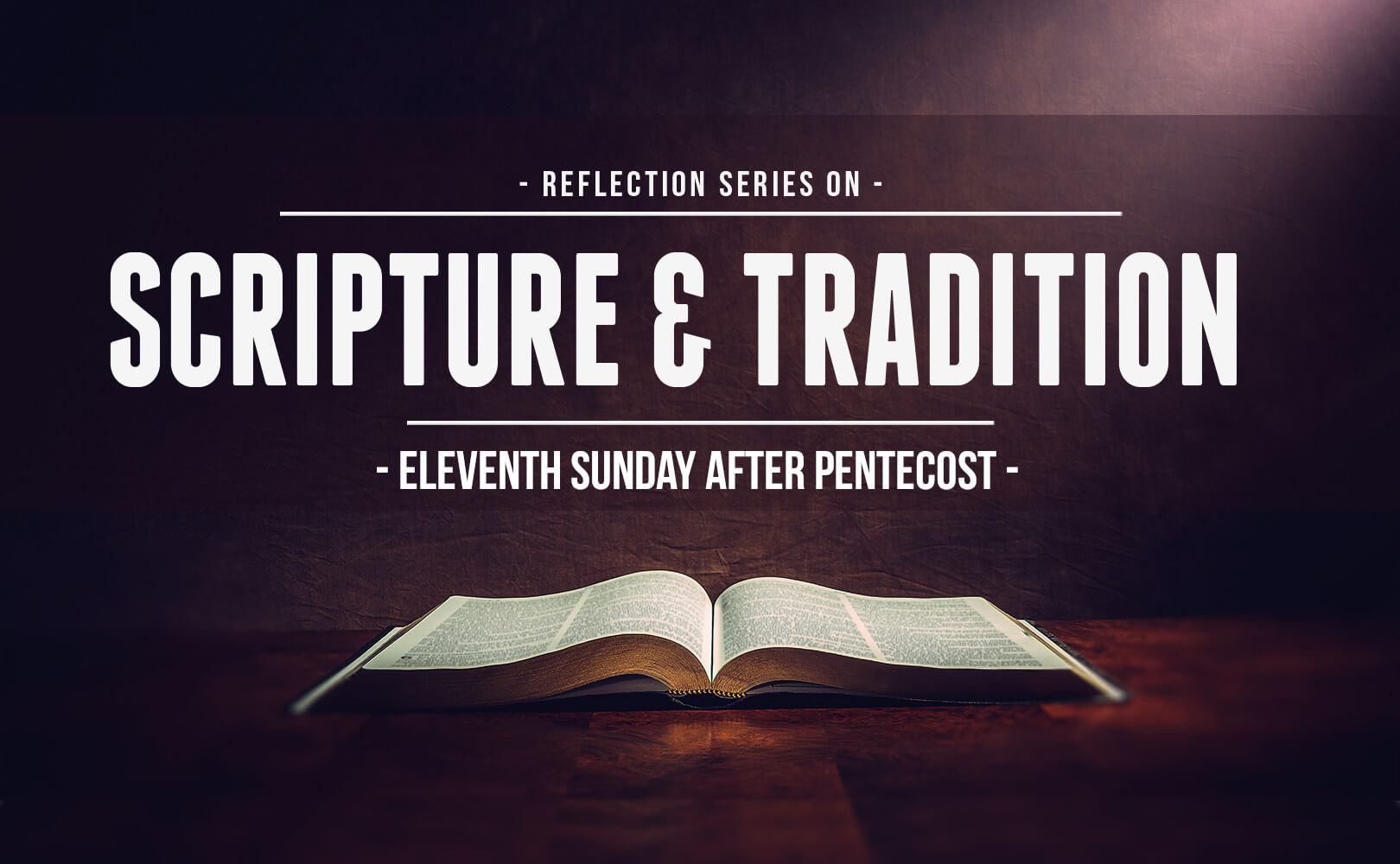Epistle: 1 Corinthians 15:1–10
Gospel: Mark 7:31–37
O almighty and everlasting God, who in the abundance of Thy loving kindness art wont to go beyond both the merits and prayers of Thy suppliant people, pour down upon us Thy mercy: that Thou may forgive us those things whereof our conscience is afraid, and grant us what our prayer does not dare to ask.
—From the Collect for the Eleventh Sunday after Pentecost
In many ways, traditional Catholicism is the antithesis of today’s ideal of religion. The modern person who wants to practice a faith often wants it flexible and purely spiritual. He wants a religion that is open to many beliefs and practices, and one that doesn’t intrude on this world to any significant degree. Sunday’s readings, however, show that true religion is not flexible, but creedal; it is not purely spiritual, but sacramental.
In Sunday’s Epistle, St. Paul is in the midst of concluding his first letter to his beloved, yet frustrating, Corinthians. All manner of teachings had infiltrated the church in Corinth; the apostle wants to make sure the Corinthian Christians stand fast to the bedrock beliefs of the Catholic Faith. So he recites to them what is likely an early creed: “I delivered unto you first of all, which I also received, how that Christ died for our sins according to the Scriptures; and that He was buried, and that He rose again the third day according to the Scriptures; and that He was seen by Cephas, and after that by the eleven” (1 Cor. 15:3–5).
For St. Paul, these beliefs are non-negotiable; Christ’s atoning death and His bodily resurrection cannot be denied by any practicing Christian. Since the early days, this insistence on adhering to creeds has been a hallmark of the Catholic Church and has kept her teaching unified and consistent. A Catholic cannot be faithful to Christ without also being faithful to the teachings of His Body, the Church.
The Catholic Church is therefore creedal, but it is also sacramental. Christ came to save all of humanity — both our souls and our bodies. True religion isn’t just in our heads; it encompasses every aspect of human existence. In Sunday’s Gospel, we see the integral connection between body and soul in Christ’s healing of the one who was deaf and dumb. We know that Christ has the power to heal with just a thought or a spoken word (and at times he does this). But in this instance, St. Mark tells us that Jesus “put his fingers into his ears: and spitting, he touched his tongue” (Mark 7:33). It was only after this physical action that the man was healed.
The Church Fathers saw in this action the condescension of God, who, although Spirit, comes down into our physical existence to save us. St. Ephrem the Syrian preached, “That power which may not be handled came down and clothed itself in members that may be touched, that the desperate may draw near to him, that in touching his humanity they may discern his divinity” (Homily on Our Lord 10). The Sacraments proclaim that God uses our physical reality in His plan of salvation, and through that physical reality we can draw closer to Him.
God, in His great mercy, does not leave us without many aids to guide us to Him. He gives us creeds through the Church so that we might know Who He is. Through that same Church He even more marvelously gives us the Sacraments so that we can touch Him Who is Spirit and be healed and raised to Him by that touch.


